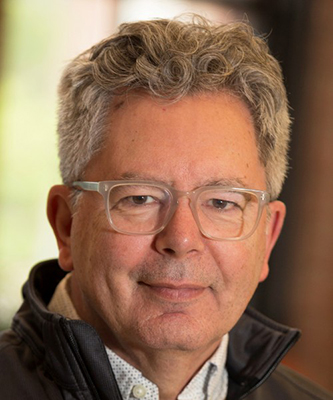November 11, 2019 | Jim Audia
Farewell, not goodbye
Former Executive Director of the CBC, Jim Audia, reflects on his time spent with the organization
By now it has begun to settle in, at least for me, that I’m no longer the Executive Director for the Chicago Biomedical Consortium (CBC) and I have begun the next chapter of my career, once again in the ‘private sector’.
For those interested I thought that it might be useful for me to capture some of my thoughts and observations made over the past two years during which I’ve had the great privilege of leading this unique and remarkable collaboration among three of Chicago’s great research universities. If you are looking for bitterness and regret, you’ve come to the wrong place as I’m thankful for this opportunity and proud of what our team has accomplished during my time there.

Chicago Biomedical Consortium (CBC) members, The University of Chicago, University of Illinois at Chicago, and Northwestern University.
The CBC is the realization of a vision which originated with Dan Searle, who believed in the “importance of scientific discovery, and…that collaboration among Chicago’s leading research universities was essential for both scientific and civic advancement.” Working together with Northwestern’s Rick Morimoto (now CBC’s Interim Executive Director), Brenda Russell and Jonathan Silverstein to develop the initial concept, and engaging Brenda Nelms and Katie Stallcup shortly thereafter, CBC began to take shape against an initial mission to enhance scientific collaboration among the member institutions. The foundation, now regarded as Phase 1, was established to enhance both the ability and the willingness to collaborate in the scientific biomedical research enterprise.
Not content to simply celebrate its initial success, in 2015/2016 the leadership of CBC, spurred on by their funders at the Searle Funds at The Chicago Community Trust, developed and embarked upon an ambitious Phase 2 agenda which sought to leverage this foundation of collaboration toward the greater translation and ultimately the commercialization of the biomedical innovation of its members for the health and economic benefit of the greater Chicago community.
I was intrigued by this concept, initially as a vehicle to return to the Midwest and to make connections in Chicago where my family has chosen to make our home, but increasingly grew to be inspired and impressed with the vision and conviction of those engaged in the effort.
Although I knew that the role was unlike anything I had done in my prior career(s), I became increasingly convinced that an outsider such as myself might be well suited to catalyze the evolution of CBC toward its next phase. What remained was for me to convince them as well, which I must have done since I was offered the job despite my acknowledged ‘ignorance’ of the answers to many of the questions which came my way.
Looking back, I find it remarkable the faith shown to an ‘outsider’ and the welcome and support afforded by the CBC staff, Scientific Directors and the representatives of the funding Searle Family. My hope is that this faith was rewarded with noteworthy progress toward each of the goals outlined in the Phase 2 plan.
I’ll not prematurely declare victory, as is often the case both in academia and industry alike, since there is still considerable work to be done to realize these ambitions. But I can see real impact from the programs that we have introduced, implemented and refined over the past 2+ years. The CBCAN, or CBC Accelerator Network, has become (despite its somewhat cumbersome name) a centerpiece of the collaborative, translational community across Chicago and occupies a critical position within the ecosystem. The Accelerator Award program, and its companion Director’s Fund, have supported nearly 20 translational projects focused on therapeutics development since its inception and fills an important niche for funding and guidance to the investigators. The Catalyst Award remains vital to the community and continues to stimulate new inter-institutional collaboration in support of fundamental basic science. And finally, the Entrepreneurial Fellows program has succeeded in attracting its initial pair of fellows, each of whom represents the real future of translational research in the greater Chicago area more vibrantly than can those of us from prior generations.
I’m proud of what we have done over the past 2+ years and am hopeful that I’ve helped to demonstrate that success in this bold and ambitious vision is indeed possible.
I’ve done none of this alone and I remain grateful to all of those who have helped me along the way, and more importantly have helped in realizing this vision. I’m particularly grateful for the support and partnership shown me by Renee Michaels from The Kinship Foundation; Scientific Directors Rick Morimoto, Lucy Godley, Luisa DiPietro and Brian Kay; CBC Staff Katie Stallcup, Karen Snapp, Kimberly Corn, Jola Glotzer, Corinna Kitcharoen, Nancy Tyrrell, Sheryl Sloan and Molly Reese; Entrepreneurial Fellows Eric Schiffhauer and Carissa Heath; my partners outside of CBC too numerous to name; and all of those who remain active supporters of the CBC and its important mission and vision. I’m excited to remain a part of this community through my many relationships developed in these short two years, and also excited to begin again my career in the private sector.
See you at an upcoming CBCAN. Farewell but not goodbye.
Jim Audia

